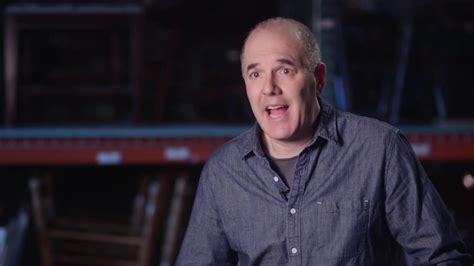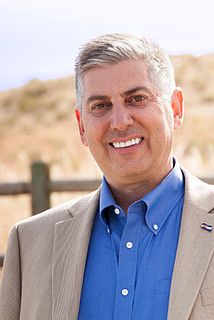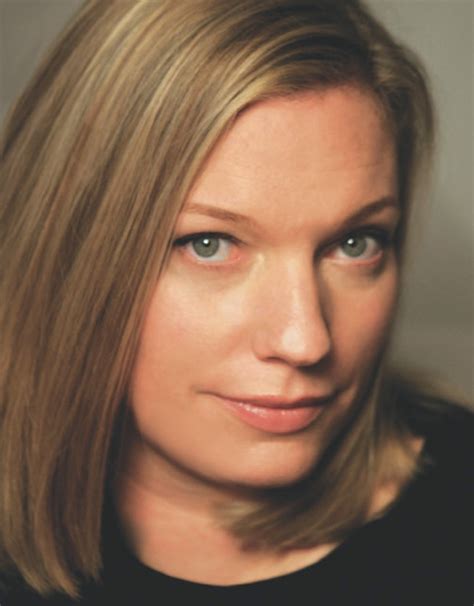A Quote by David Auburn
One [of the two ideas for PROOF] was to write about two sisters who are quarreling over the legacy of something left behind by their father. The other was about someone who knew that her parent had had problems of mental illness [and that] she might be going through the same thing.
Related Quotes
I lived in New York until I was eleven years old, when my mother left my two older sisters and my father. My mother is 90 percent blind and deaf. She left and moved all the way to California. So I left my two older sisters and my father behind at the age of eleven and moved cross-country to take care of her.
Hats change everything. September knew this with all her being, deep in the place where she knew her own name, and that her mother would still love her even though she hadn’t waved goodbye. For one day her father had put on a hat with golden things on it and suddenly he hadn’t been her father anymore, he had been a soldier, and he had left. Hats have power. Hats can change you into someone else.
[My mother] was the oldest of two sisters and two brothers, and she grew up with her brothers, who were about her age. She grew up, to the age of ten, like a wild colt, and then all of a sudden that was over. They had forced on her her 'woman's destiny' by saying, 'This isn't done, this isn't good, this isn't worthy of a lady.'
I remember one letter from a girl in a midwestern town who read one of my books and thought she had discovered it- that no one had ever read it or knew about it. Then one day in her local library she found cards for one or two of my other books. They were full of names- the books were borrowed all the time. She resented this a bit and then walked around the town looking in everybody's face and wondering if they were the ones who were reading my books. That is someone I write for.
Day and night she had drudged and struggled and thrown her soul into her work, and there was not much of her left over for anything else. Being human, she suffered from this lack and did what she could to make up for it. If she passed the evening bent over a table in the library and later declared that she had spent that time playing cards, it was as though she had managed to do both those things. Through the lies, she lived vicariously. The lies doubled the little of her existence that was left over from work and augmented the little rag end of her personal life.
She knew that what she was going through was nothing special, just garden-variety heartbreak, the sort of thing that poets and novelists had been writing about for hundreds of years, but she also knew, from those same books, that there were people who never recover form it, ones who go on through life beset by a dim and painful longing.
Her family had of late been exceedingly fluctuating. For many years of her life she had had two sons; but the crime and annihilation of Edward a few weeks ago, had robbed her of one; the similar annihilation of Robert had left her for a fortnight without any; and now, by the resurrection of Edward, she had one again.
Mother Teresa was a hero of mine for a long time. I just like the way she took on the world from a very humble place. She has a great quote. When she was leaving her monestary to start Sisters of Charity, she had two pennies. She was asked by a head priest what she could possibly do with two pennies. She said, 'Nothing. But with two pennies and God, I can do anything'.
It was a strange thing, to still be in love with your wife and to not know if you liked her. What would happen when this was all over? Could you forgive someone if she hurt you and the people you love, if she truly believed she was only trying to help? I had filed for divorce, but that wasn't what I really wanted. What I really wanted was for all of us to go back two years, and start over. Had I ever really told her that?
Occasionally, on screen, Barbara [Stanwyck] had a wary, watchful quality about her that I've noticed in other people who had bad childhoods; they tend to keep an eye on life because they don't think it can be trusted. After her mother was killed by a streetcar, she had been raised in Brooklyn by her sisters, and from things she said, I believe she had been abused as a child. She had lived an entirely different life than mine, that's for sure, which is one reason I found her so fascinating. I think her early life was one reason she had such authenticity as an actress, and as a person.
He read the letter again, but could not take in any more meaning than he had done the first time and was reduced to staring at the handwriting itself. She had made her g's the same way he did : he searched through the letter for every one of them, and each felt like a friendly little wave glimpsed from behind a veil. The letter was an incredible treasure, proof that Lily Potter had lived, really lived, that her warm hand had once moved across this parchment, tracing ink into these letters, these words, words about him, Harry, her son.
Her father had taught her about hands. About a dog's paws. Whenever her father was alone with a dog in a house he would lean over and smell the skin at the base of its paw. This, he would say, as if coming away from a brandy snifter, is the greatest smell in the world! A bouquet! Great rumours of travel! She would pretend disgust, but the dog's paw was a wonder: the smell of it never suggested dirt. It's a cathedral! her father had said, so-and-so's garden, that field of grasses, a walk through cyclamen--a concentration of hints of all the paths the animal had taken during the day.






































